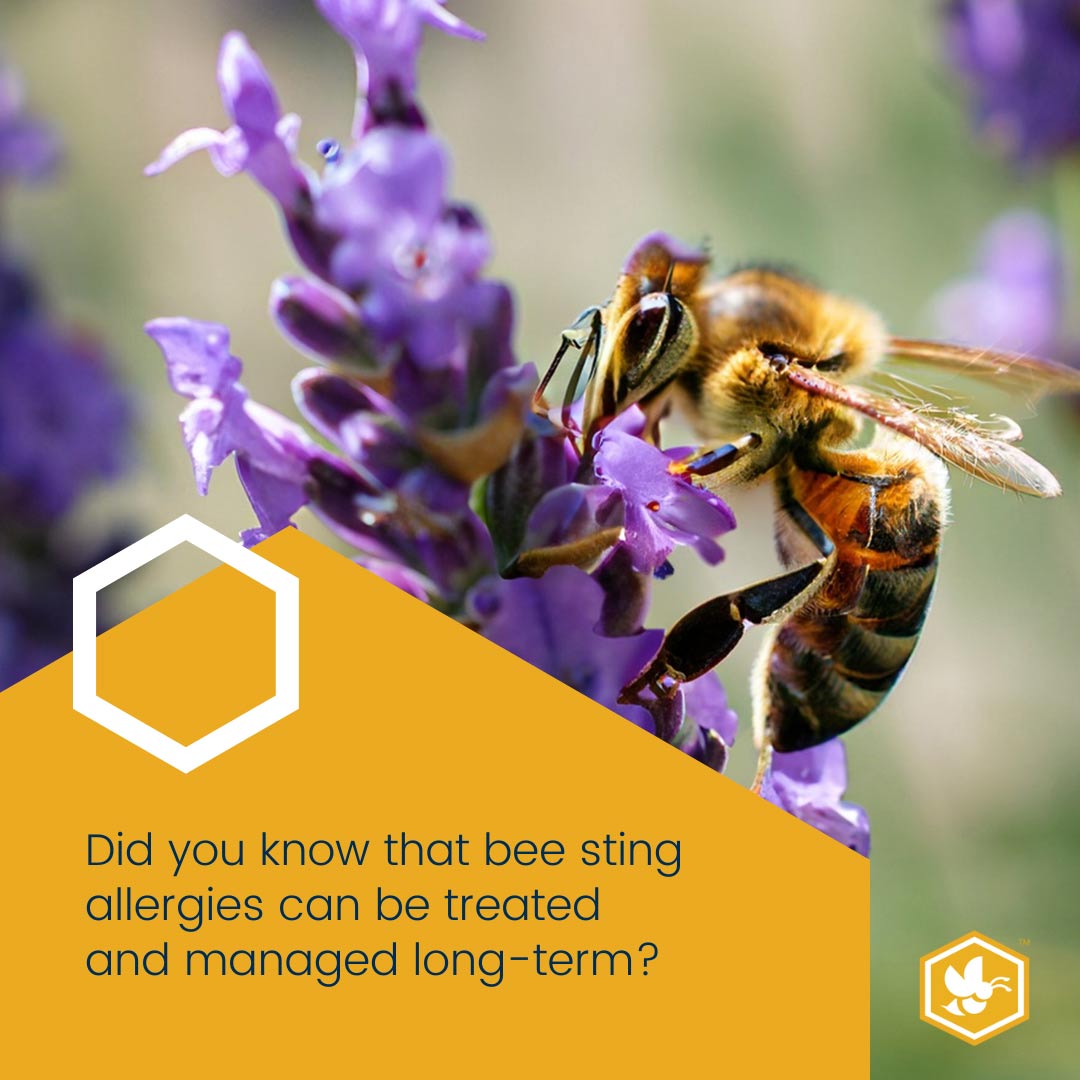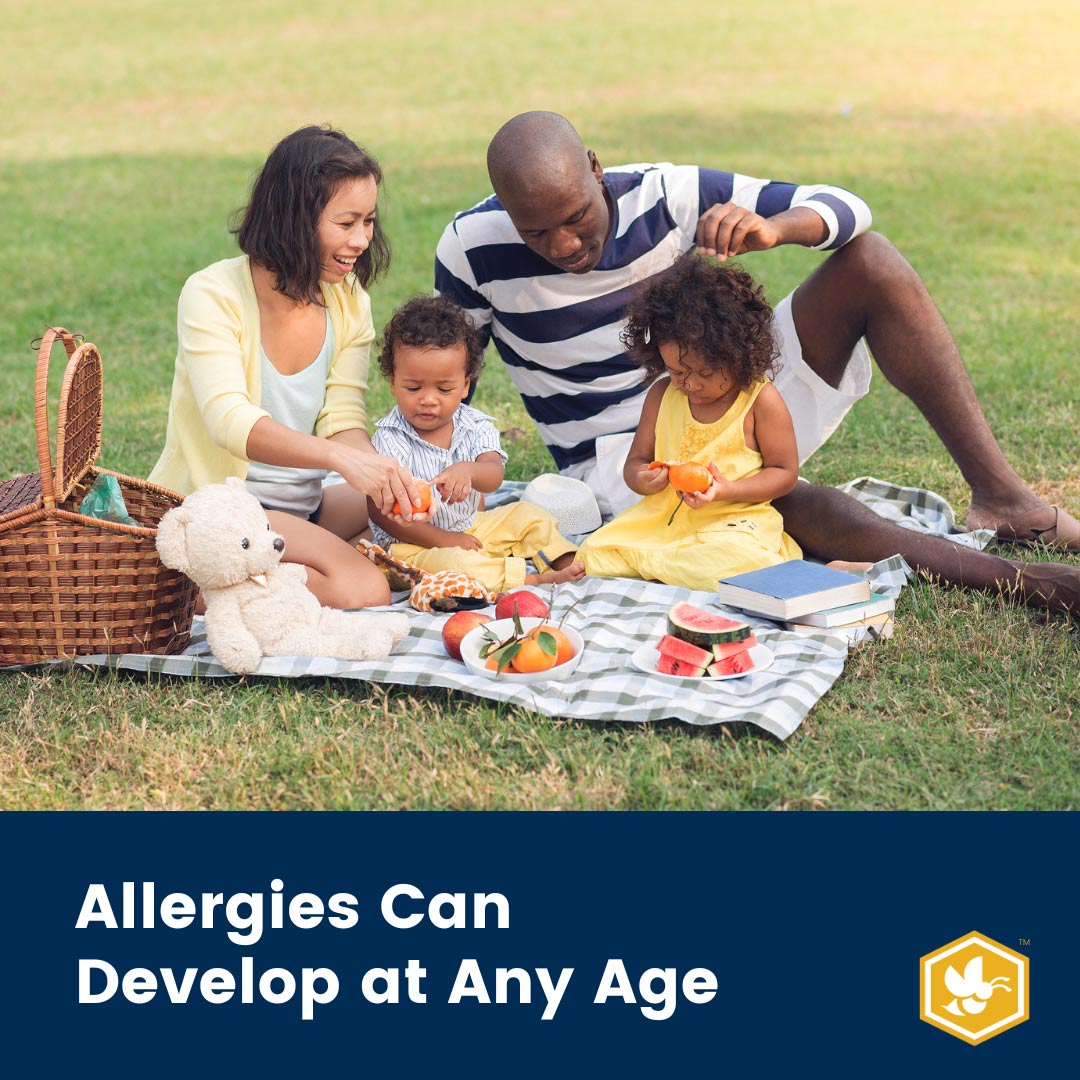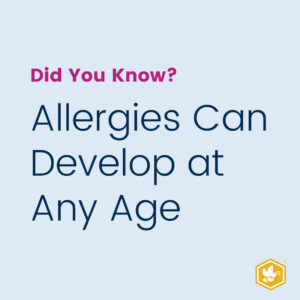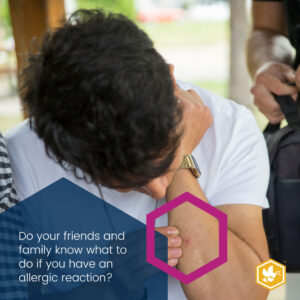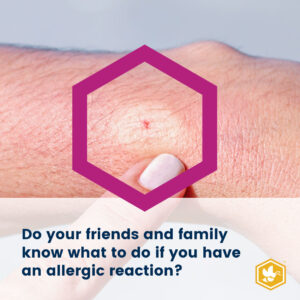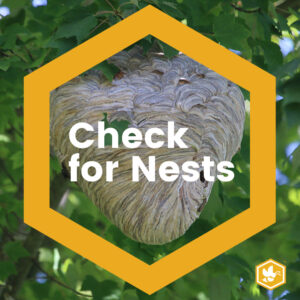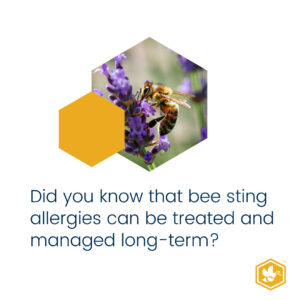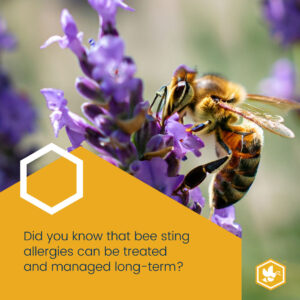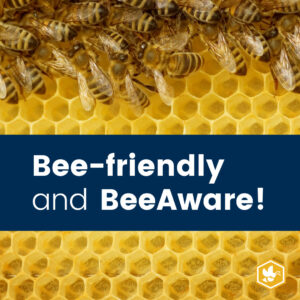Social Media Toolkit
Quickly spread the word about bee sting allergies and venom immunotherapy with BeeAware’s Social Media Toolkit!
Below, you’ll find a manual containing best practices for social media. Put these into practice by sharing the most important statistics we’ve written down for you. Then, download images and videos that are perfect for most social media platforms. Pair them with our pre-written text for the perfect post!

Follow us on social media! Then, tag us in your bee sting allergy posts, give us a mention (or two!), and share our content.
Instagram: @beeawareallergy
Facebook: @beeawareallergy
Pinterest: @beeawareallergy
Twitter: @beeawareallergy

What is Venom
Immunotherapy?
Venom immunotherapy is a highly effective treatment for bee sting allergies. Learn why and how it works.
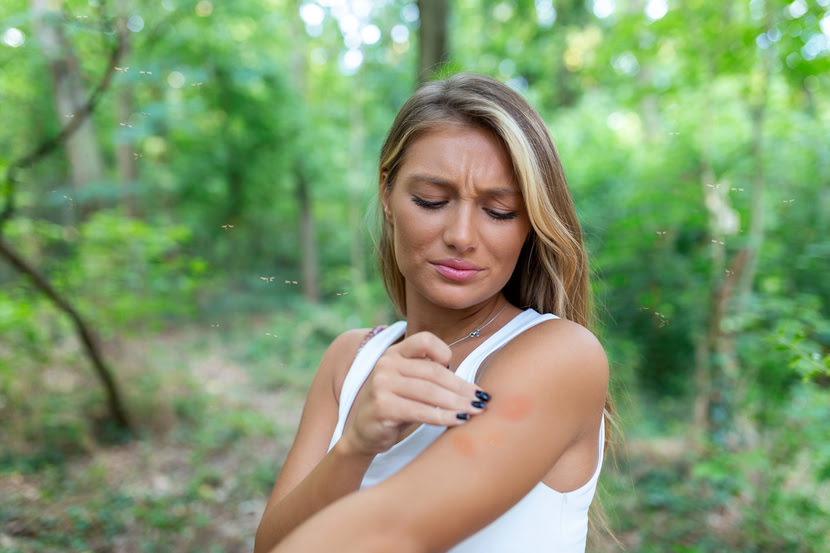
Bee Sting Myths vs. Facts
Discover the truth behind common bee sting allergy myths and learn how to stay safe. Get the facts on bee sting allergies.
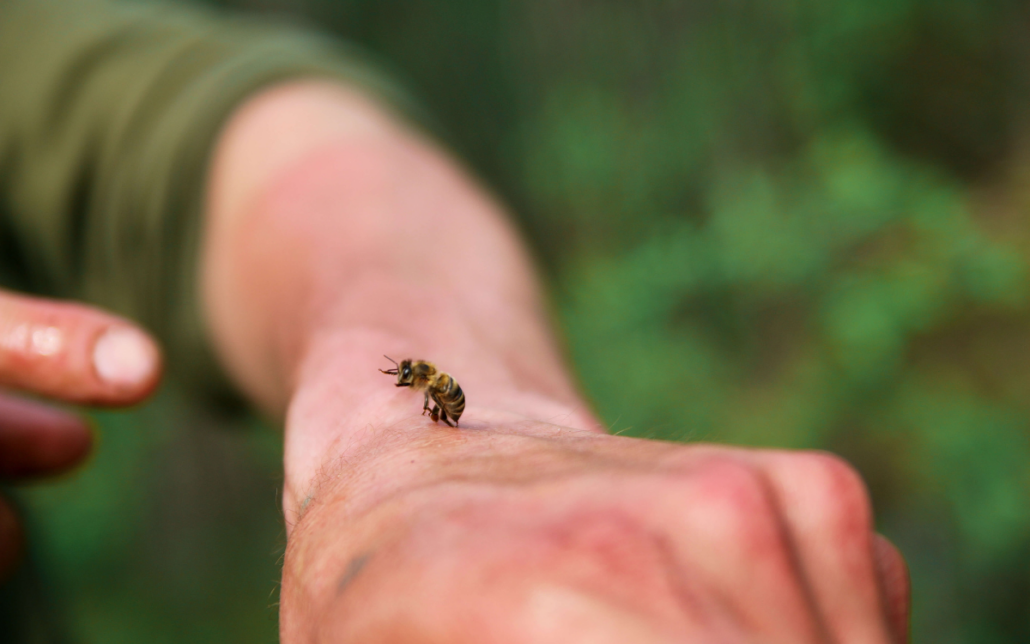
An Inside Look at Severe Reactions to Bee Venom

The Basics of Bee Sting Allergy Testing
Learn the basics of bee sting allergy testing! After reading, you’ll feel ready to contact an allergist.
#beeaware #beestingallergy
- Venom immunotherapy is up to 98% effective in preventing systemic allergic reactions.
- 16 million Americans are living with a potentially life-threatening bee sting allergy.
- Between 5% and 7.5% of Americans are hypersensitive to insect stings.
- 220,000 ER visits occur each year for bee sting allergy-related anaphylaxis.
- 60 deaths per year are directly related to severe bee sting reactions.
- 70% of allergy patients fail to carry their epinephrine consistently.
- 55% of insect sting patients fail to correctly demonstrate epinephrine pen administration.
Did you know that bee sting allergies can develop at any age? Talk to your allergy provider about creating an action plan and learn more about how to treat and manage your bee sting allergy. Stay safe no matter the season!#beeaware #beestingallergy
If you have a bee sting allergy, make sure your family and friends know how to recognize an allergic reaction and what steps to take. Awareness is the first step to safety! #beeaware #beestingallergy
Make sure your yard is a safe space! Regularly check for nests around your home and garden. If you find one, call a professional to remove it safely. Prevention is key to avoiding stings! #beeaware #beestingallergy
Love the outdoors but worried about bees? Wear closed-toe shoes, avoid scented lotions and perfumes, and steer clear of flowering plants when you’re enjoying the outdoors. Staying alert can help you enjoy nature safely, no matter what. #beeaware #beestingallergy
Bee-friendly and Bee-Aware! If you’re allergic to bee stings, avoid walking barefoot in grassy areas and keep food covered during outdoor meals. Small precautions like this can make a huge difference when it comes to bee sting allergy safety. #beeaware #beestingallergy
Did you know that bee sting allergies can be treated and managed long-term? Venom immunotherapy (VIT) is a proven treatment that helps your body build tolerance to bee venom over time. Ask your allergist today about VIT! #beeaware #beestingallergy


